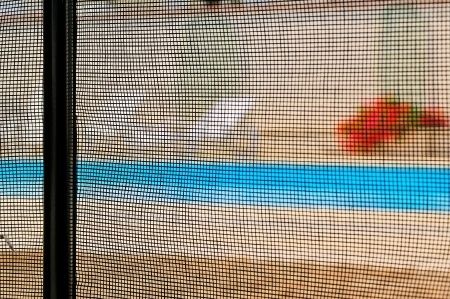Combining Safety Measures May Reduce Drowning Risks
August 10, 2015 | Category: Inadequate Security | ShareSwimming can be a great source of family fun and fitness. However, it is important to make safety a priority to protect children and others in and around the water.
In 2013, the latest statistics available from the Florida Department of Health, 448 residents and 86 visitors drowned in Florida. Drowning ranks as the leading cause of death in Florida among children ages 1 to 4. Every week we hear of another child who has died in a swimming pool accident in Florida.
Drowning is often preventable and avoidable unlike some other causes of death. There are effective ways to prevent drowning some of which include four-sided fencing, swimming lessons, life jackets, and supervision/lifeguarding. Knowing CPR can also save someone's life. To most effectively reduce the risks of drowning, combine several safety measures for "layered protection."
"It is important that we always be reminded of the need for layered protection around swimming pools. We feel that this important issue should be addressed every time we are around pools to avoid the tragedy of drowning," said Fort Myers Personal Injury Attorney, Randall Spivey of Spivey Law Firm, Personal Injury Attorneys, P.A. "This is why we are sharing the following recommendations."
Drowning Prevention Measures
The Injury Prevention Section of the Florida Department of Health launched the Waterproof FL: Pool Safety is Everyone’s Responsibility campaign, in 2011 which now runs every June. This campaign advocates practicing pool safety by incorporating layers of protection. The layers include: supervision, barriers and emergency preparedness as a safety net, keeping a child safe and helping to prevent a drowning.
 Barriers: A child should never be able to enter the pool area unaccompanied by an adult. Barriers physically block a child from the pool. Barriers include: child-proof locks on all doors, a pool fence with self-latching and self-closing gates, as well as door and pool alarms. Pool covers may also be used but make sure it is a professional cover fitted for your pool. A simple canvas covering can be a drowning hazard and entrap a child in the water. Florida law requires barriers for all home pools.
Barriers: A child should never be able to enter the pool area unaccompanied by an adult. Barriers physically block a child from the pool. Barriers include: child-proof locks on all doors, a pool fence with self-latching and self-closing gates, as well as door and pool alarms. Pool covers may also be used but make sure it is a professional cover fitted for your pool. A simple canvas covering can be a drowning hazard and entrap a child in the water. Florida law requires barriers for all home pools.
Supervision: Children should never be in or around a pool alone. When you are responsible for another person while near the water, take that job seriously. Text messages, Facebook, emails and any other distractions can be handled later.
Lifejackets: Even in a pool, inexperienced swimmers and young children may benefit from wearing properly fitted life jackets. If you are not a strong swimmer, use a life jacket. If you are on a boat, use a life jacket. If you bring your kids on a boat, they absolutely have to wear properly fitting life jackets.
Florida Weekly reported in early July 2015 that in the absence of lifeguards, lifejacket loaner stations are surfacing at Southwest Florida beaches. The U. S. Coast Guard approved lifejackets are available in all sizes, from infant to multiple Xes. Beachgoers are welcome to take them, use them and return them.)
Swimming Lessons: Participation in formal swimming lessons can reduce the risk of drowning by as much as 88% among young children aged 1 to 4 years, who are at greatest risk of drowning. If you cannot swim, it is time to learn. If you have children, grandchildren, nieces, nephews or god-children who cannot swim, get them enrolled in swimming lessons.
Be Prepared for an Emergency:
- Learning CPR - Cardiopulmonary resuscitation is a skill that may save a life. The local YMCA, the Red Cross and many local hospitals offer classes.
- Keeping a charged portable telephone by the pool - If you need to call Emergency Services, your phone is within seconds reach. This call could make a REAL difference.
- Rescue equipment – Is your pool safety-ready? Ropes and float lines placed across the pool alert swimmers to the separation of the deep and shallow ends of the pool. Rescue equipment such as life rings and shepherd’s crooks can be used to pull someone in trouble to safety.
- Keep a list of emergency contact telephone numbers poolside.
Homeowners may be held responsible for injuries in or around their pools, even if the victims were trespassing, scaled a fence to access it, or otherwise used it without the homeowner's permission, there may be legal responsibility.
"If you or your child has been injured in a pool, consult an experienced personal injury attorney regarding your rights and remedies," says Attorney Spivey. "For more information about swimming accidents, please visit Swimming Accidents on our website."
Southwest Florida Accident Attorney, Randall L. Spivey is a Board Certified Trial Attorney – the highest recognition for competence bestowed by the Florida Bar and a distinction earned by just one (1%) percent of Florida attorneys. He has handled over 2,000 personal injury and wrongful death cases throughout Florida. For a free and confidential consultation to discuss your legal rights, contact the Spivey Law Firm, Personal Injury Attorneys, P.A., in Lee County at 239.337.7483 or toll free at 1.888.477.4839,or by email to Randall@SpiveyLaw.com. Visit SpiveyLaw.com for more information. You can contact Spivey Law Firm, Personal Injury Attorneys, P.A.in Charlotte County at 941.764.7748 and in Collier County 239.793.7748.

